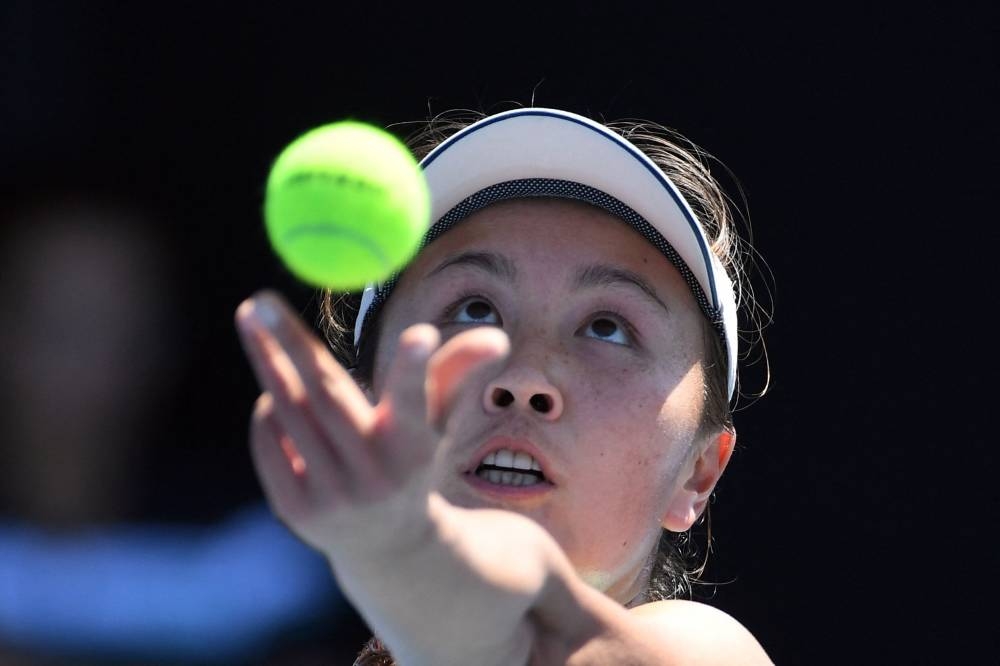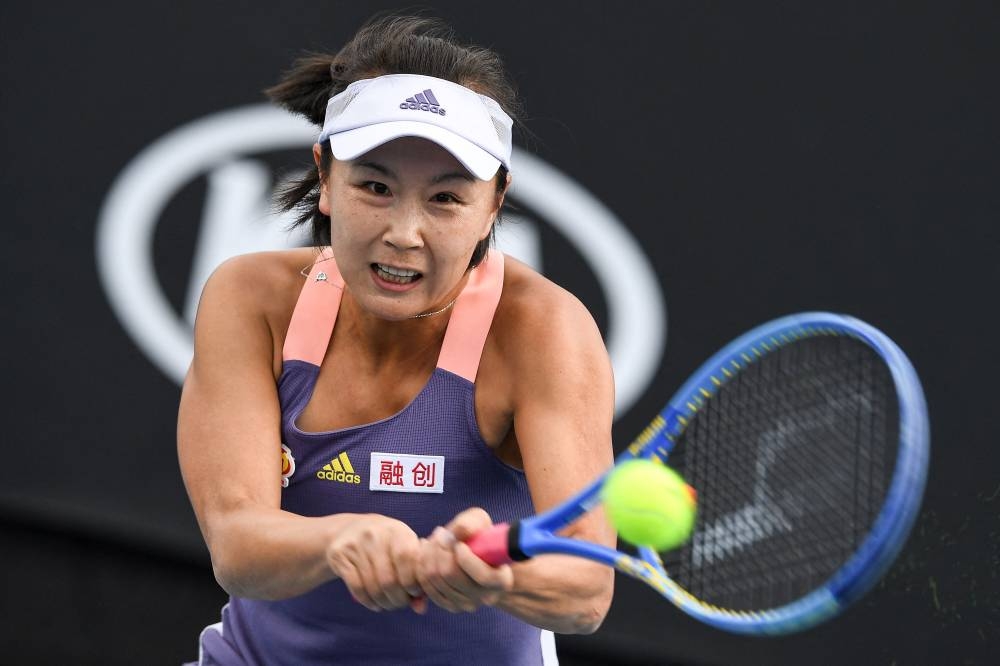WTA return shows China key to women's tennis on and off court

SHANGHAI - The WTA's decision this week to return to China, despite unresolved questions around the safety of player Peng Shuai, betrays the financial and strategic importance of the country to the tennis organisation, analysts and former players say.
Peng, a former doubles world number one, has not been seen outside China since 2021, when she made - and then withdrew - accusations of sexual assault against a high-ranking official.
The WTA had previously said they would not return to China without a formal investigation into the allegations and an opportunity to meet privately with Peng.
But on Thursday it backed down, saying it had concluded "we will never fully secure those goals, and it will be our players and tournaments who ultimately will be paying an extraordinary price for their sacrifices".
The move was widely seen as a capitulation, and some questioned whether the boycott had ever been sincere.
Most major sports events in China were cancelled anyway over the last few years because of Beijing's strict zero-Covid policy.

The WTA's Chinese-language press release announcing the return was just a few lines long, and did not mention Peng at all -- in contrast to a lengthy English one that detailed the saga.
Human Rights Watch described the move as "a huge disappointment for the Chinese human rights community".
"It is not surprising, though, given the money at stake aighnd the record of other international businesses in China," the NGO said in a statement.
Former player Anne Keothavong put it more bluntly.
"Tennis is a business," she told British media.
"The WTA need to generate commercial revenue and the players need a circuit to compete."
From 2015 onwards, China became a huge source of income for the WTA, culminating in a 10-year contract in 2018 to make Shenzhen the host of its traditional end-of-season tournament.
Giving that event to a country which already had nine other tournaments worth tens of millions of dollars did not look like a risky strategy at the time.
Shenzhen's bid doubled the seven-million-dollar total prize money for the event, with Ashleigh Barty claiming a record-setting $4.4 million (RM19.38 million) paycheck there in 2019 -- the largest sum ever awarded in men's and women's tennis.
The WTA has suffered deep financial losses recently, with Chinese tournaments cancelled due to the pandemic.
The total prize money for the 2021 Guadalajara and 2022 Fort Worth Finals was just five million dollars, which the WTA had to pay itself.
The ATP men's circuit, which never joined the boycott, has scheduled four tournaments in China this year, which had raised fears the financial gap between the men's and women's games could widen even further.
"(The ATP) were straight back to China as soon as they could and almost before the pandemic had ended," China-based sports analyst Mark Dreyer told AFP.
"They were like, we don't want to get caught up in this thing because we're going to lose out on Chinese money."
Dreyer said the WTA may have had more leverage, pointing to how Covid had already forced the sports industry to find alternatives to China.
"The WTA had continued around the world, so they've got replacement tournaments," he argued.
While not as lucrative, "they were not in a disastrous situation where they desperately had to come back to China or else they would fold".
But the WTA told the BBC that the "great majority" of players were in support of going back to China.
World number five Caroline Garcia called the return "very important".
Aside from the huge sums currently up for grabs in China, the country is also crucial to the WTA's blueprint for the future.
"China rapidly became the centre of the WTA's plans for growth" after Li Na became the country's first Grand Slam champion in 2011, wrote The Guardian's tennis reporter Tumaini Carayol.
And the influx of money and interest in the sport was welcomed by athletes.
When the Shenzhen deal was announced, Maria Sharapova said the championship was heading to a place "that's willing to invest in women's tennis".
According to the International Tennis Federation, in 2021 there were 50,000 tennis courts in China and 20 million players, the latter second only to the United States.
"There are five Chinese women in the top 60, which is really a lot," said Dreyer.
"There are one or two who really have the potential to be Grand Slam winners in the future, which is going to put tennis very much front and centre (in China) again."
At bustling tennis courts in Shanghai on Friday morning, the WTA return was greeted positively.
"There are more tennis players now than before, especially women," said a 41-year-old amateur player named Su.
"So there will be more people who will want to watch." - AFP











